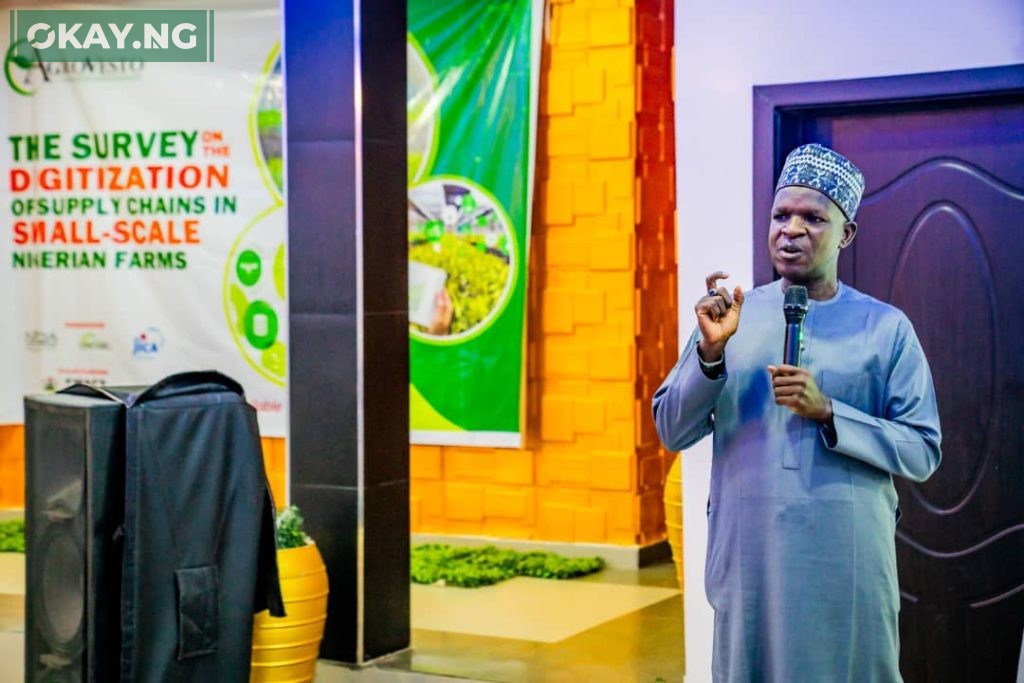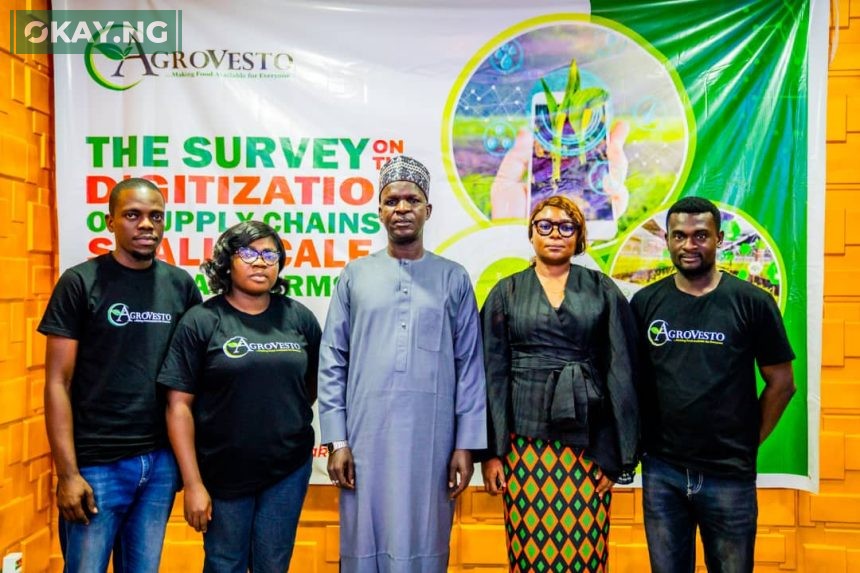The Director General of the National Information Technology Development Agency (NITDA), Kashifu Inuwa, has highlighted the transformative potential of advanced technologies such as Artificial Intelligence (AI), the Internet of Things (IoT), and blockchain in addressing the challenges faced by Nigeria’s farmers.
Speaking through Engr. Salisu Kaka, Director of Digital Economy Department, Inuwa delivered a keynote speech at the launch of a survey on the Digitisation of Supply-Chain in Small-Scale Nigerian Farms Project.

The event, held in Abuja, was organized by AGROVESTO, an Agritech startup and beneficiary of the iHatch Incubation Programme Cohort 2, in collaboration with NITDA, the Office for Nigeria Digital Innovation (ONDI), the Japan International Cooperation Agency (JICA), and the Federal Ministry of Agriculture and Food Security (FMAFS).
The project’s aim is to enable smallholder farmers in Nigeria to thrive, increase their income, and expand their market opportunities, thereby creating wealth and prosperity through agriculture. Inuwa noted that agriculture employs a significant number of Nigerians and accounted for 25.18% of Nigeria’s GDP in 2023 through crop production, livestock, forestry, and fishing, with crop production taking the largest share.
He emphasized that digitizing the supply chain for small-scale farms offers a transformative solution to the challenges of food security in the country.
“Small-scale farmers are the backbone of crop production in Nigeria but face numerous challenges including limited access to technology, high production costs, limited financing, high post-harvest losses, poor market access, labor shortages, and high labor costs,” Inuwa stated.
He added that these issues hinder the farmers’ productivity and economic potential. Optimizing the supply chain will ensure that small-scale farmers can meet increasing consumer demands, enhance food quality and safety, and promote sustainable practices.
Inuwa explained that technologies like AI, IoT, and blockchain can significantly aid this transformation. AI can handle time-demanding tasks using machine learning and predictive modeling, IoT can monitor crops and generate real-time data to inform automation and best practices, and blockchain can provide end-to-end traceability in supply chains with sharable data, building consumer trust and managing disease outbreaks in crops.
“NITDA has been actively supporting the growth of Nigeria’s agricultural sector. One key initiative is the National Adopted Village for Smart Agriculture (NAVSA), which has engaged 965 farmers in integrating technology into agriculture,” he said.
“Our Strategic Roadmap and Action Plan, 2024 – 2027 (SRAP 2.0), also highlights our focus on promoting technology in agriculture to boost food security, increase the sector’s GDP contribution, drive economic diversification, and create jobs, aligning with the priorities of President Bola Ahmed Tinubu’s Renewed Hope Agenda.”
Inuwa cited a successful example of a digitized agricultural sector, noting that agriculture contributes 33% to Kenya’s GDP. He mentioned that JICA, through its Small Horticulture Empowerment & Promotion (SHEP) Approach, doubled the income of 2,500 small-scale farmers between 2007 and 2009.
AGROVESTO’s Co-founder and CEO, Bayo Adewoye, shared insights from the project, stating that 63.5% of the farmers earn between 20,000 and 100,000 naira monthly during the sales season, with 63% taking their products to the open market to sell.
He emphasized that the project aims to address these challenges and improve farmer income by connecting them to wider markets through digital tools, increasing their bargaining power and sales, and boosting their incomes.
Adewoye added that digitizing agricultural value chains can reduce post-harvest losses and improve the flow of goods, benefiting both farmers and markets.
The initiative also aims to enhance digital literacy, empowering farmers with digital skills to leverage technology for accessing information and expanding their market reach.
The next steps include the rollout of digitization of market access, which entails designing and integrating a tailored digital platform for market access, onboarding cooperatives and SHEP graduates to the platform, and conducting monitoring and evaluation activities, including review meetings with JICA and ONDI, webinars, and knowledge sharing.









